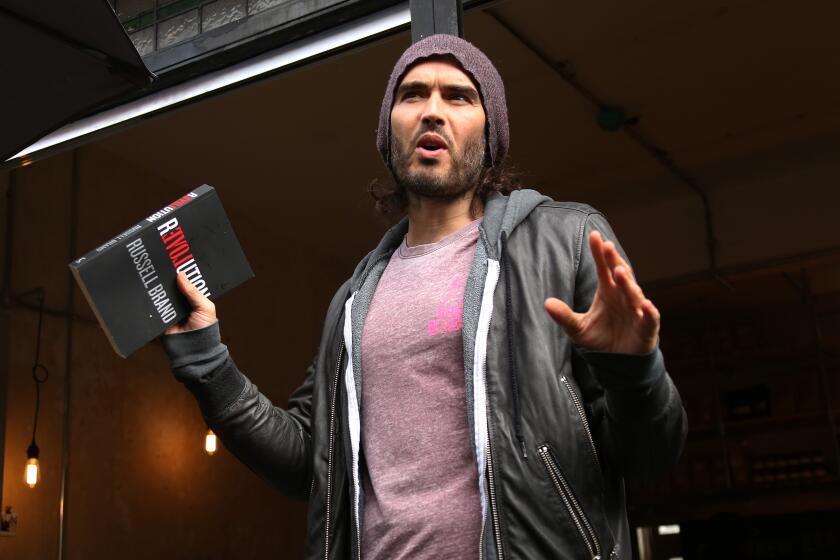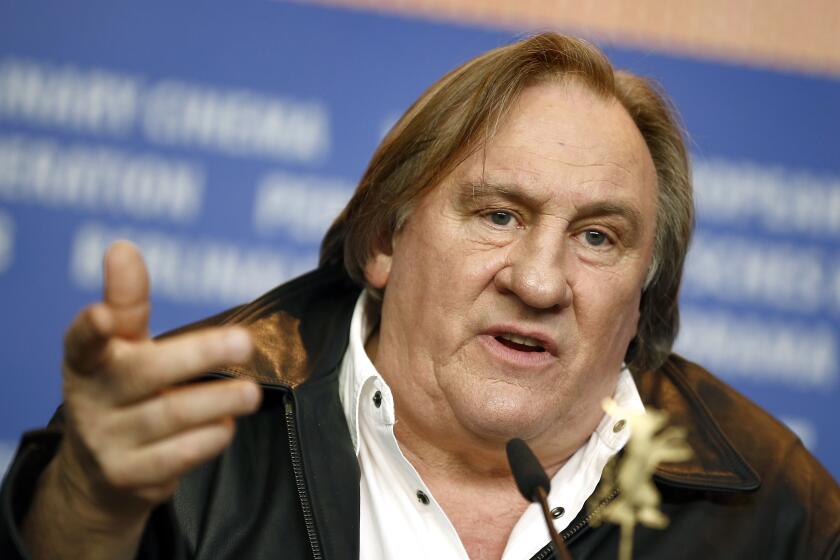Thumbs Up for Standout Soundtracks
From “Waiting to Exhale” and “Dead Man Walking” to “Trainspotting” and “Sling Blade,” soundtracks are popping up in the Guide (designed to help readers keep up with what’s exciting in pop on an album budget of $50 a month) with increasing frequently. That’s because more and more soundtracks are exhibiting the same commanding artistic vision that you find in the most accomplished regular releases. Whether the music is created for the film (Babyface’s “Exhale”) or incorporates previously available recordings (“Trainspotting”), the albums have the vitality and pop instincts to deserve attention independent of the films.
MARCH
Erykah Badu, “Baduizm” (Universal). The material, including the hit single “On and On,” offers a rare mix of sophistication and pop accessibility, but the real treat here is the cocky phrasing and vocal authority of Badu, a singer from Texas who seems to want more from her music than just a place high on the Billboard charts (where this debut album has already taken her). At a time when Toni Braxton has just been crowned the new queen of R&B-pop;, Badu--whose music and manner seem smart, sexy and witty--emerges as a bona fide challenger.
“Lost Highway” soundtrack (Nothing/Interscope). Following up on his excellent “Natural Born Killers” soundtrack, Trent Reznor has surrounded himself with heroes and contemporaries (from David Bowie and Lou Reed, among the former, to the Smashing Pumpkins and Marilyn Manson, among the latter) in an anxious, disturbing companion piece to David Lynch’s film. Highlighted by Nine Inch Nails’ harrowing “The Perfect Drug,” the album is an eccentric yet engrossing work that also includes compositions by Angelo Badalamenti and Barry Adamson.
U2, “Pop” (Island). The Irish band’s latest offers an extraordinary emotional and sonic range--from the mocking, mirror-ball frivolity of “Discotheque” and the primal scream intensity of “Mofo” to the cold exteriors of “Last Night on Earth” and the inspiring melodic embrace of “Staring at the Sun.” The constant in U2’s work is high ambition driven by the twin goal of making music that reaches a wide audience, yet is challenging and impeccably crafted.
APRIL
Charlie Hunter Quartet, “Natty Dread” (Blue Note). Asked by Bruce Lundvall, the savvy president of Blue Note Records, to recast a classic pop album in a jazz framework, jazz guitarist Hunter--whose own influences range from rockabilly to reggae--reportedly considered works by everyone from the Beatles to Curtis Mayfield before settling on Bob Marley’s 1975 “Natty Dread.” It was a wise choice and Hunter approaches the music with a welcome daring, even kicking off “No Woman, No Cry” with a country trace of “Tennessee Waltz.” Now, how about tackling “Superfly”?
“Traveller” soundtrack (Asylum). Every pop diet needs an occasional dish of country and this delightful entree should carry you for a while. Though there are a few R&B; and rock side orders, the main serving involves contemporary country artists singing country hits from the ‘40s, ‘50s and ‘60s. Jimmie Dale Gilmore checks in with two Lefty Frizzell hits, while Randy Travis revives Roger Miller’s “King of the Road” and k.d. lang returns to her Patsy Cline roots for “Seven Lonely Days.” Enjoy.
Sleater-Kinney, “Dig Me Out” (Kill Rock Stars). The expectations were high following this Pacific Northwest trio’s “Call the Doctor” album, which finished No. 3 in the last Village Voice critics poll, but the group--whose themes feel drawn from real life rather than simply lifted from the pop-rock public domain--lives up to them with an album that combines some of the arty playfulness of the Talking Heads with punk-driven accessibility of the Clash. Striking.
More to Read
Only good movies
Get the Indie Focus newsletter, Mark Olsen's weekly guide to the world of cinema.
You may occasionally receive promotional content from the Los Angeles Times.






